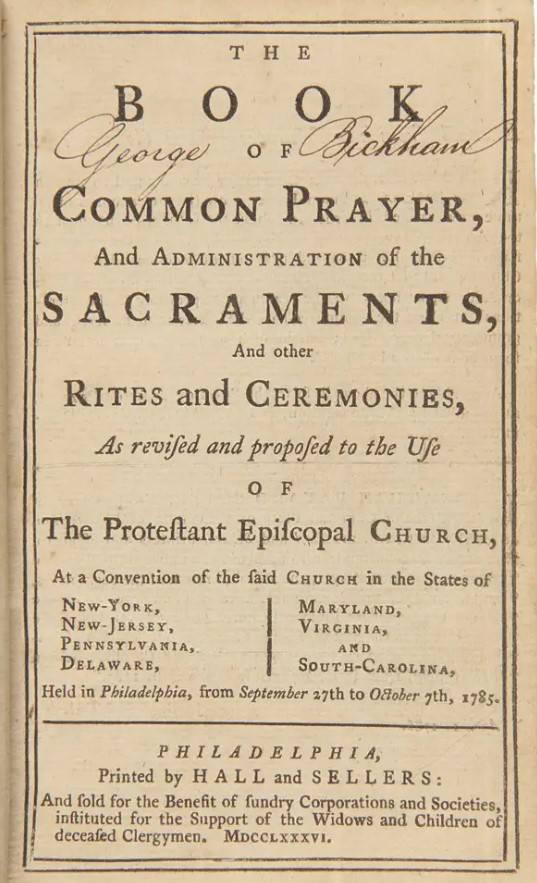1793 American Revisions to 1662 English Book
The 1789 Book of Common Prayer (BCP) adapted the 1662 English BCP for the newly formed Protestant Episcopal Church in the United States. This adaptation reflected the desire for a liturgy more appropriate to the American context and the evolving theological landscape of the time. The key changes included:
- Removal of Prayers for the Royal Family were replaced with prayers for “the President and Congress of the United States” and “all in authority.”
- Elimination of the Oath of Authority requiring clergy to swear allegiance to the King and the Church of England and the addition of a declaration of allegiance to “the Constitution of the United States of America.”
- Specific psalms associated with the English monarchy were reinterpreted or replaced with more general ones suitable for the American context.
- Omission of prayers for specific holidays and saints associated with the English Crown: This move aimed to create a more inclusive and unifying liturgy for a diverse nation.
- Reduced emphasis on predestination and double predestination: These aspects, prominent in the 1662 BCP, were toned down to reflect a more moderate Calvinist influence in American theology.
- Simplification of language: Archaic words and phrases were replaced with clearer and more contemporary language, making the liturgy more accessible to a wider audience.
- Addition of the Athanasian Creed: This creed was not included in the 1662 BCP but was added based on its affirmation of the Trinity, a key theological principle at the time.
- Shortened length of services: Some prayers and responses were shortened or omitted to accommodate shorter attention spans and diverse worship styles.
- Prioritizing Sundays as the primary day of worship.
- Introduction of alternative communion practices, i.e., allowing for kneeling or standing during communion, offering greater flexibility than the prescribed kneeling in the 1662 BCP.
- Inclusion of new prayers and thanksgiving services: These reflected themes of gratitude for independence, national unity, and civic responsibility.
- Removal of the Apocrypha from the Lectionary: This followed the precedent set by the English Puritans and reflected a growing emphasis on the Hebrew and Greek canon.

